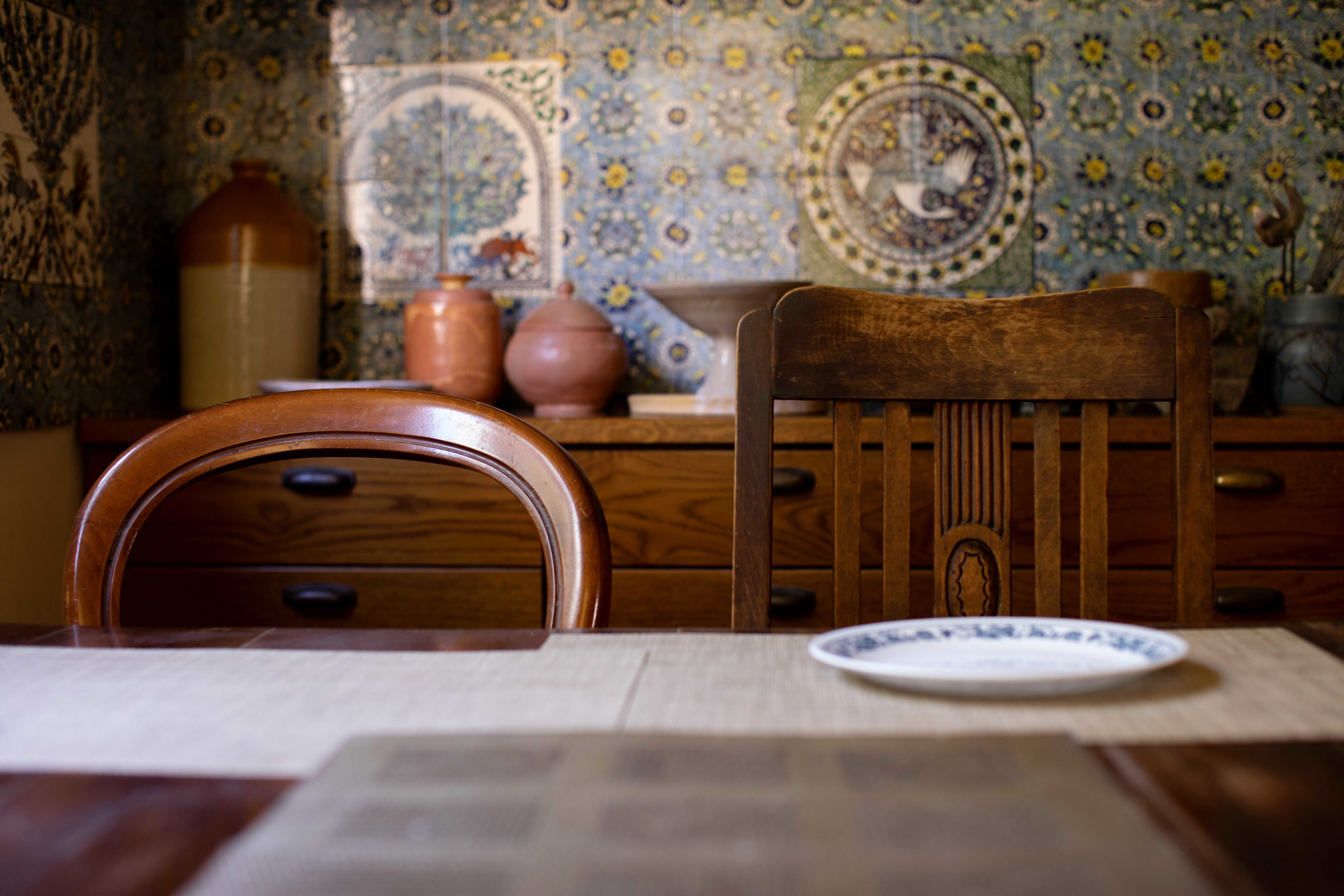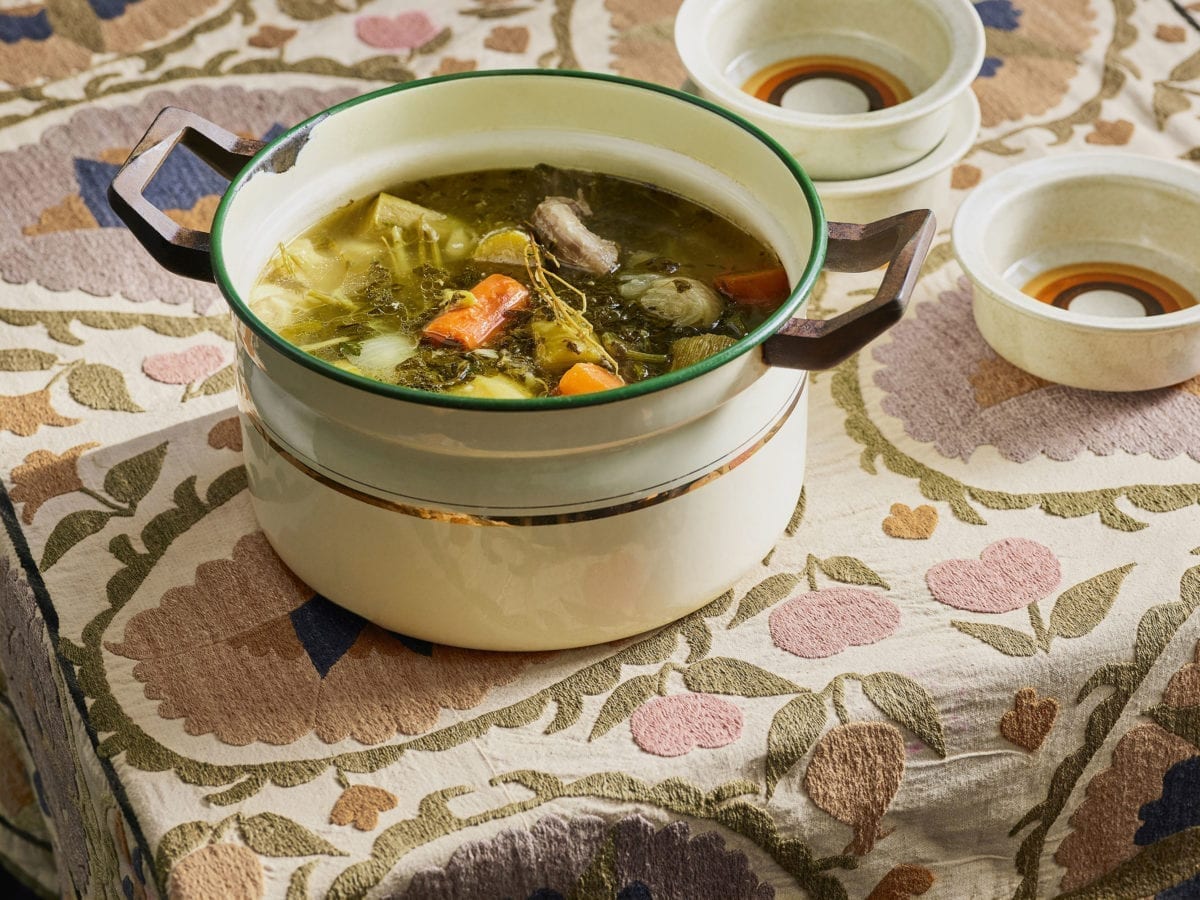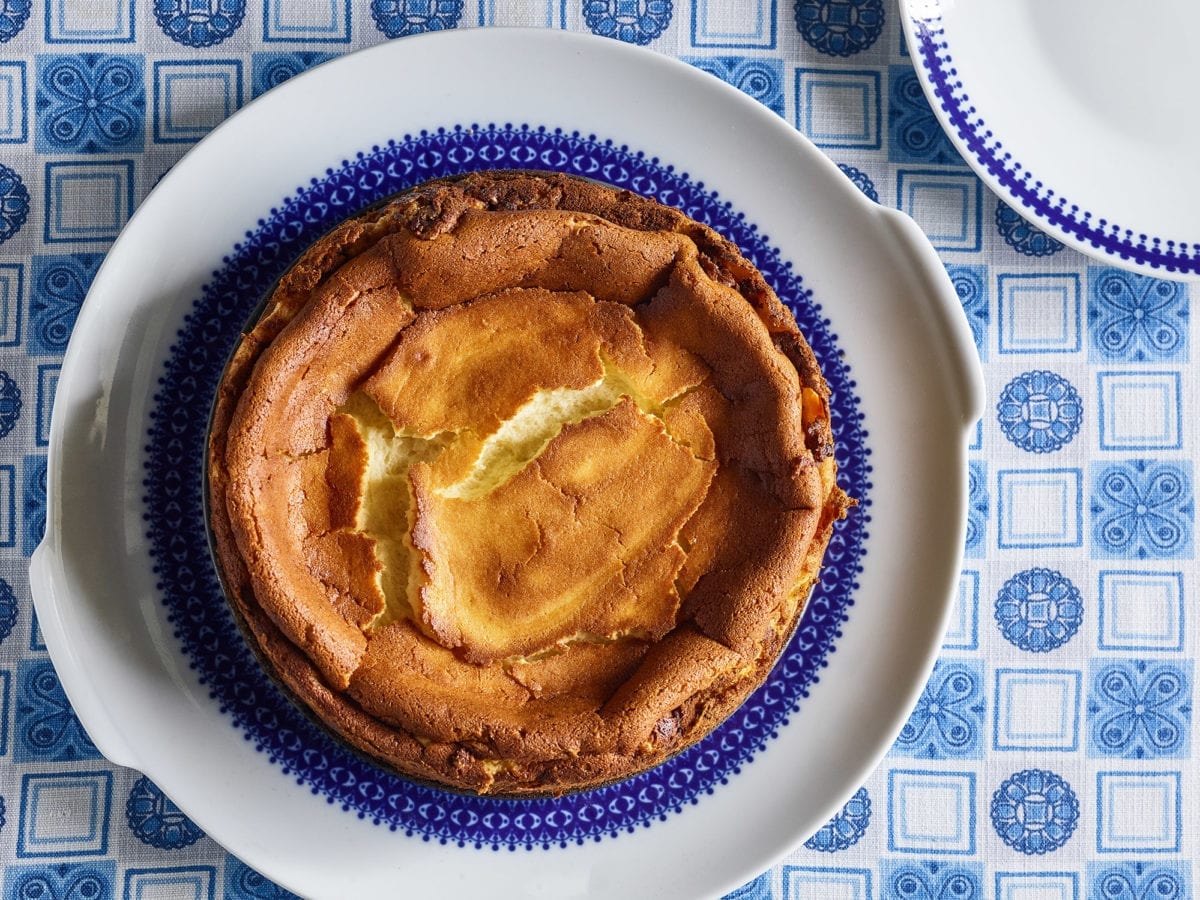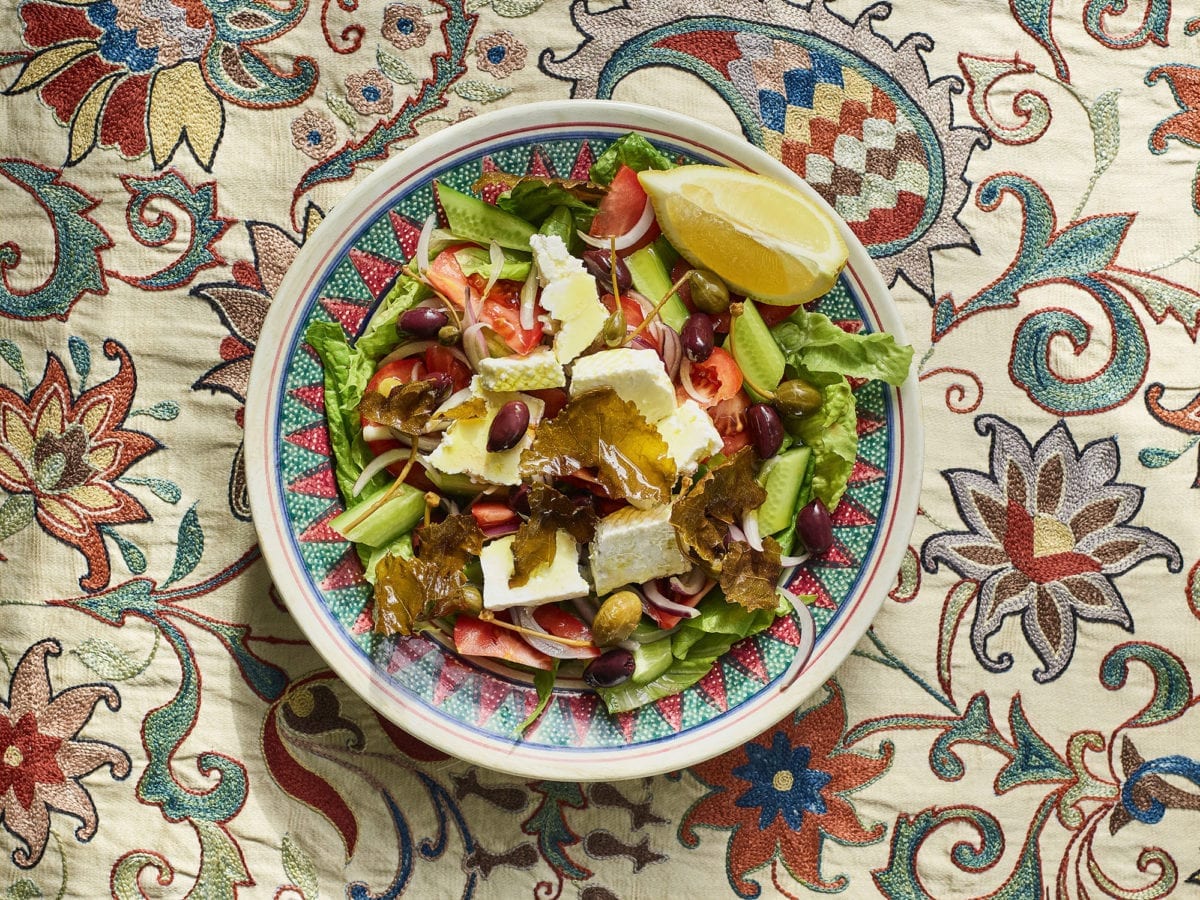The sounds of my daily activity mingle with the phantom noises of hers, noises that she created in the house in which she raised us and which is no more: dishes that dried overnight on the stone kitchen bench being stored away in cupboards with a clatter that pierces our pre-dawn slumber, the mist which still floats down the hallways; her mincing walk accompanied by the tip-tapping of the nails of the dog that followed her everywhere she went. I hear the call-signs of morning broadcasts that spilt out of the radio in those days, blended with the rattle of coffee beans being ground in a special appliance. They signal the sleepers to gather strength, and unsheathe their bodies from snug beds into the chill of a Jerusalem morning.
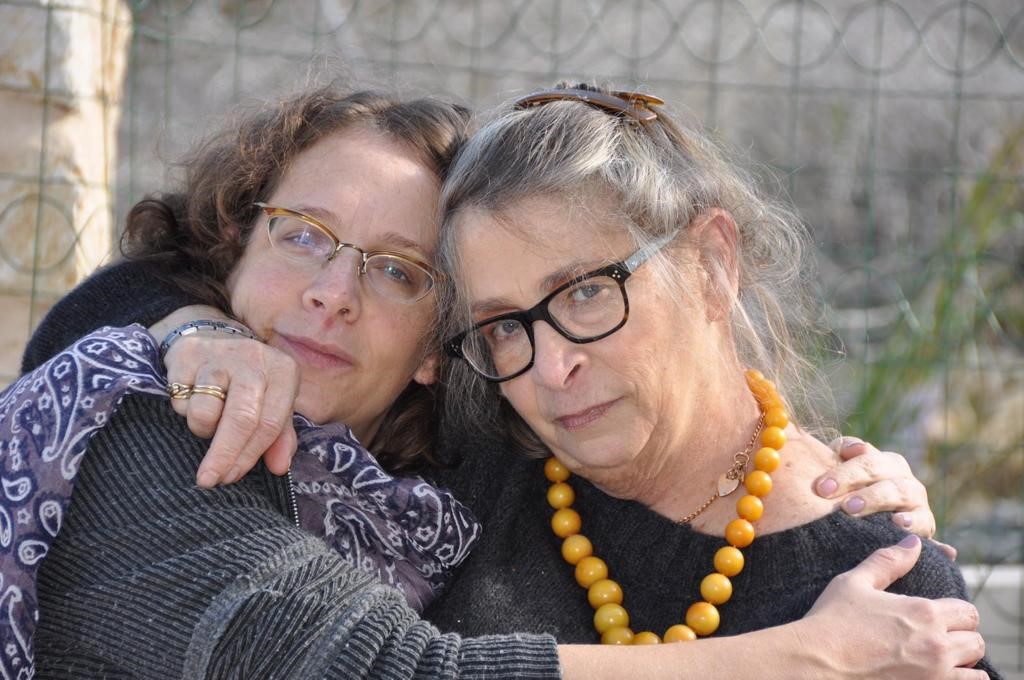
On one of my visits to her, not long ago, I casually mentioned that I had been to the market and inadvertently bought four packets of unground coffee beans. She said: “Take my grinder. I used it to grind turmeric, but it’s not a problem to clean it.”
It was a small machine, essentially an off-white aluminum cylinder with a tiny motor inside it. A gray, semi-transparent plastic cover sat atop it and when it was lifted, revealed tiny metal blades in the center of a silvery aluminum bowl. The exact amount of coffee beans needed at that moment was poured into the little bowl and the cover replaced. One hand firmly held the cylinder on the counter, while the other pressed down the plastic cover to activate the grinder and protect the user from losing a finger in a moment of distraction.
Whoever operated the grinder had to know the exact timing needed to achieve the desired fineness or coarseness of the grounds. The machine was then banged two or three times on the bench to settle the powder that had piled up by the centrifugal force of the blades, and avoid spillage when the cover was opened. I sometimes forget to do it, and my heart goes out to the coffee particles that were split and wasted.
My mother had the machine for years. I never saw another one like it, and when she suggested I take it home, I asked no questions. She called me that evening and said, “You don’t wash a machine like that with water — just so you know.”
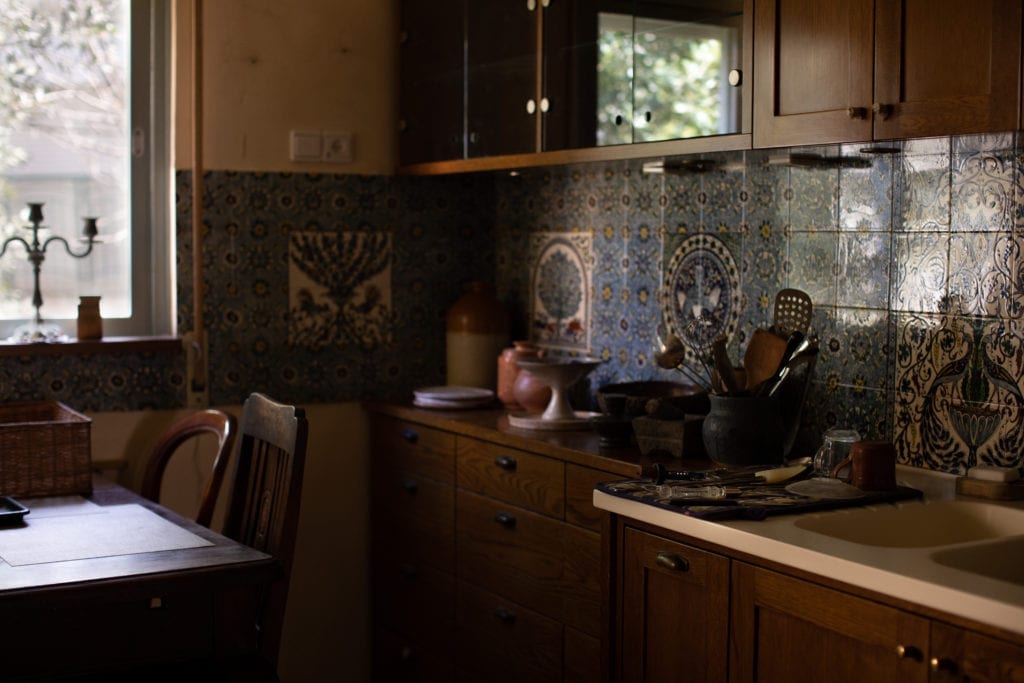
When she died, I found other coffee-making devices among her belongings. One of them was for making filtered coffee, not with a cone of filter paper, but with a plunger that presses the filter into the coffee-diluted water, a French press. I remembered that she would pour boiling water over freshly ground coffee, and place the lid with the plunger over the container.
Like any little girl who wants to take part in the ceremonies of cooking and baking, I would say “I want to push, I want to push!” And she would respond impatiently, “Don’t touch it now. It’s got to stand the way it is.” And she would put the whole assembly aside, out of my reach. Fearing that she would forget to call me, or that she would prefer to do it herself, I would wait for the moment she wasn’t looking and press the plunger down, despite the prohibition. The plunger had to be pushed slowly, so that the water permeated the filter, and didn’t choke up the coffee grounds at the bottom. I didn’t have that expertise, nor the necessary pride in coffee-making. That is only acquired when one grows up and learns to appreciate its wondrously bitter taste, and the deep memories its aroma awakens. She would get angry with me for ruining the coffee, for wasting such a high-quality substance that she bought especially from some faraway place and is no longer available, for boiling water for no purpose. Mumbling, she would add, “Don’t you have a room? Perhaps you can go to a friend’s house? Why do you get in my way here?”
“The kitchen was her room. Her fortress. The place in which she established herself, sometimes even isolated herself, doing things that seemed to all of us vital.”
— Anat Rivlin
The kitchen was her room. Her fortress. The place in which she established herself, sometimes even isolated herself, doing things that seemed to all of us vital but enabled her to avoid doing other things that demanded shouldering our burdens, which, because of her health, she was perhaps unable to do.
From her I learned to stand in hidden corners of the kitchen, with my back turned on the rest of the house. My cup of coffee and me — and the wall. My elbows resting on the stone countertop. But I only pretend to be busy with something. I do not challenge myself with cooking. I know I will not be able to recreate the flavors, and perhaps I don’t want to play out the game in its entirety. Unlike my mother, I stand there, not essential.
